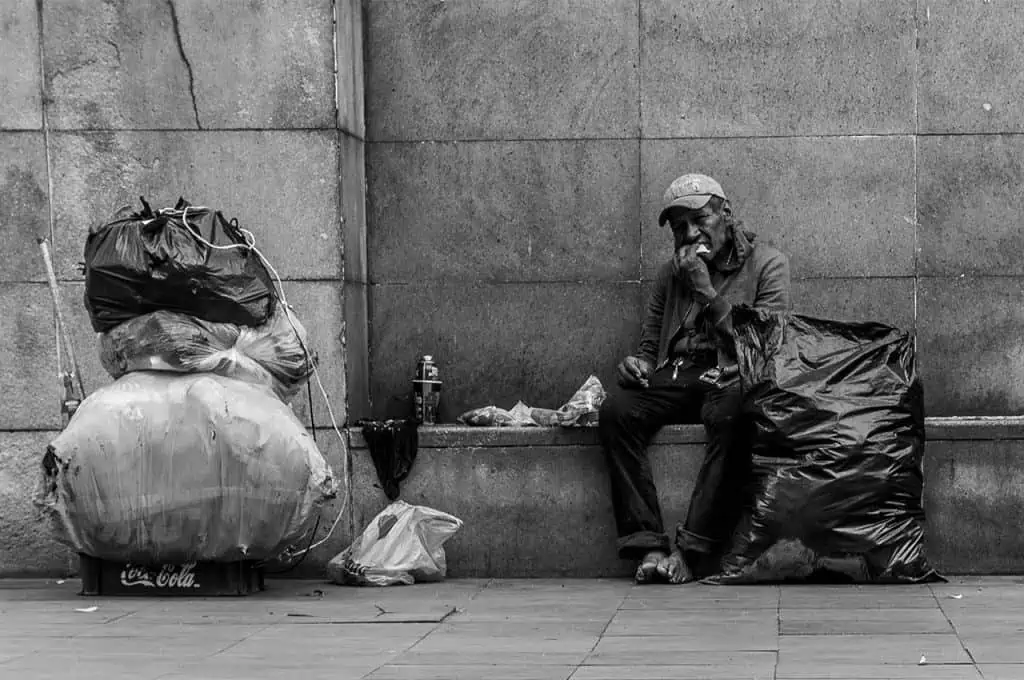The Silence of Hunger: What Skipping Meals Reveals About Power, Privilege, and Survival
Exploring the silence that accompanies an empty plate brings insights into the realms of power, privilege, and survival. Skipping meals, whether as a choice or circumstance, speaks volumes about societal structures and personal decisions. Understanding the underlying forces that dictate who eats and who doesn't reveals a complex tapestry of cultural practices, political statements, and economic disparities. This conversation invites deeper consideration of how food, or the lack of it, shapes our lives and the world around us.
When Diet Culture Masks Privilege

Diet culture often glamorizes food restriction, ignoring the privilege inherent in choosing when and why to eat less. While some see dieting as a path to health or beauty, it can obscure the reality that for many, food scarcity is not a choice. This contrast highlights a stark divide: those who idealize limitation versus those who experience it without choice. Recognizing this privilege involves understanding how societal structures contribute to food access and who controls the narrative around dietary practices and their perceived value.
Fasting as Faith: Sacred Traditions
In many cultures, fasting holds sacred significance. Religions such as Islam, Christianity, and Hinduism incorporate fasting as a spiritual cleanse and devotional act. This practice emphasizes restraint, illuminating the relationship between the physical and the spiritual. For practitioners, fasting becomes a tool for reflection and connection, transcending the mere absence of food. The discipline involved highlights humility and obedience, fostering a deeper spiritual awareness and underscoring the power of intentional deprivation.
The Political Power of Hunger Strikes
Hunger strikes serve as formidable tools of protest, transforming personal sacrifice into powerful political statements. Activists have long employed this method to draw attention to oppression and injustice. By willingly foregoing sustenance, individuals highlight their plight and the urgency of their demands. This form of protest challenges oppressors to confront the moral and ethical implications of their actions, while the abstention from food amplifies the voice of the marginalized, ultimately seeking to instigate change through peaceful, yet impactful means.
Wellness or Want? Choice vs. Necessity
In modern discourse, fasting is often spotlighted in wellness circles, celebrated for its potential health benefits. However, this perspective differs dramatically from the involuntary fasting experienced by those in poverty. Where one scenario showcases choice and control, the other highlights survival and deprivation. Recognizing this distinction is crucial, as the luxury of choosing when to eat is not universally afforded. The societal portrayal of fasting thus complicates perceptions of health, often blurring the line between privilege and necessity.
The Language of Hunger: Silent Protest
Hunger exists not only as a physical sensation but as a form of silent protest. When individuals or groups are deprived of food, either by circumstance or choice, it becomes a powerful communication tool, highlighting societal inequalities. The absence of food on the plate can reflect disparities in power and access, making hunger not only a personal struggle but a statement of resistance and demand for change. Analyzing hunger through this lens requires understanding the varied reasons behind it, from systemic oppression to personal rebellion against unjust systems.
Generational Memories of Scarcity
Generational memories of scarcity shape cultural attitudes towards food, influencing how communities understand and react to hunger. These memories, passed down through stories and practices, impact food preparation and consumption, often prioritizing resourcefulness and conservation. Such shared histories serve as reminders of past hardships, informing present behaviors and cultural identities. They underscore resilience while revealing enduring inequalities in food access, urging a thoughtful consideration of how past scarcity informs current culinary traditions and values.
Inequality at the Table: Who Eats, Who Doesn't
The table, a symbol of community, can also be a stark illustration of inequality. Who is present, and who isn't, speaks volumes about access and privilege. Disparities in food distribution highlight systemic inequalities, often linked to socioeconomic status, race, and geography. While some enjoy abundance, others struggle with food insecurity, forced to prioritize necessity over choice. Addressing these imbalances requires a critical examination of food systems and a commitment to ensuring equitable access, challenging the structures that dictate who gets to eat.
Hunger as Resistance: Historical Stories
Historically, hunger has been wielded as a form of resistance, from hunger strikes to refusal of subjugated roles. These acts showcase resilience and a demand for change, using deprivation as a tool to draw attention to injustice. Notable figures and movements have shifted perceptions and created lasting social change through controlled or forced hunger. Understanding these stories broadens the conversation about hunger, reframing it as an active, not passive, expression of agency and an unwavering call for justice and reform.
Food Insecurity in Wealthy Shadows

Food insecurity exists even in affluent nations, often lurking unnoticed in the shadows of prosperity. Economic inequalities mean basic nutrition remains out of reach for many, with substantial portions of populations reliant on food banks or government aid. The contrast between abundance and lack illustrates systemic failings where the right to food is unequally distributed. Acknowledging this discord challenges us to address the root causes of hunger and to work towards a future where sustenance is seen as a universal right rather than a privilege.
Breaking the Silence: Why Hunger Talks Matter
Addressing hunger begins with understanding the critical dynamics that often go unheard. Skipping meals, while perhaps a choice for some, highlights the stark contrast between privilege and necessity for others. It reveals the disparity in access to consistent nutrition and the underlying power structures that allow such gaps to persist. Elevating these discussions gives a voice to those whose struggles are often minimized. Recognizing hunger as a multifaceted issue requires that we listen and learn, encouraging empathetic and informed approaches to initiating change.
